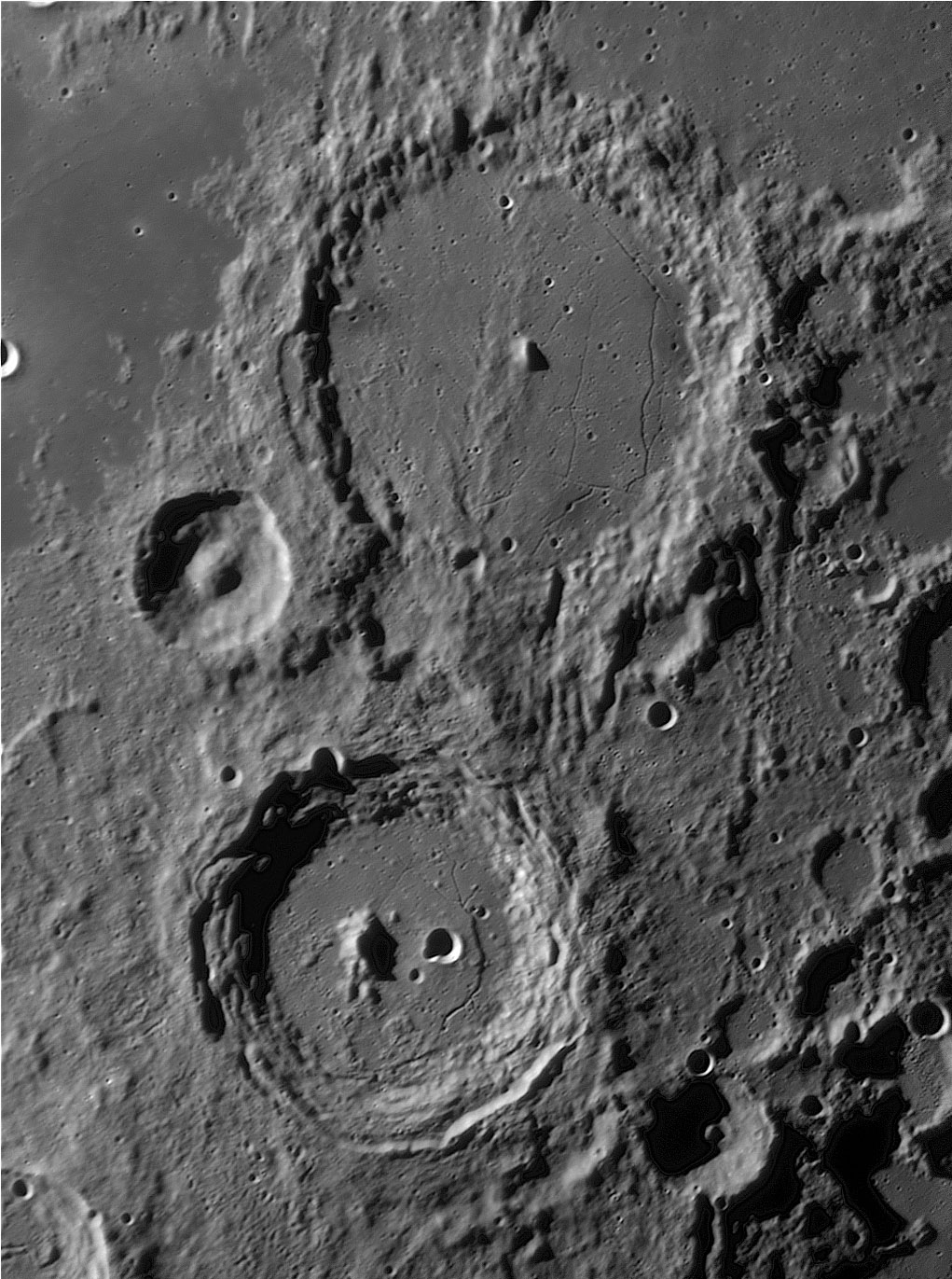
image by Wes Higgins, Tecumseh, Oklahoma
I am on travel and was not planning to write a new LPOD and then this evening I saw Wes’ new image and couldn’t help myself. Gosh, this is good! Comparison with the commonly used Lunar & Planetary Institution’s digitized Lunar Orbiter image of nearly the same area demonstrates that Wes’ image shows craters not visible of that orbital view and the rilles and other features are more sharply displayed - and there are no lines from the Orbiter’s photo-reconstruction process! Both Alphonsus and Arzachel are floor-fractured craters, and Alphonsus is the easiest place on the Moon to see volcanic dark halo craters. The Imbrium Basin impact-forming event created a number of radial crater chains that are well seen east of Alphonsus as well as the three gougely like short chains just north of Arzachel. This is a glorious image - look at each square centimeter and try to understand its history!
Technical Details:
September 14, 2006, 18″ Reflector, 4x Powermate, Infinity 2-1M camera, MAP processing.
Related Links:
Rükl plate 44
Wes’ website
Yesterday's LPOD: Not Quite a Bulls-Eye
Tomorrow's LPOD: Serenitatis Diameter Sequence
Now you can support LPOD when you buy ANY book from Amazon thru LPOD!
Yesterday's LPOD: Not Quite a Bulls-Eye
Tomorrow's LPOD: Serenitatis Diameter Sequence
COMMENTS?
Register, and click on the Discussion tab at the top of the page.
Contributions to http://www2.lpod.org/ are licensed under a Creative Commons Attribution No-Derivative-Works Non-Commercial 3.0 License. 



